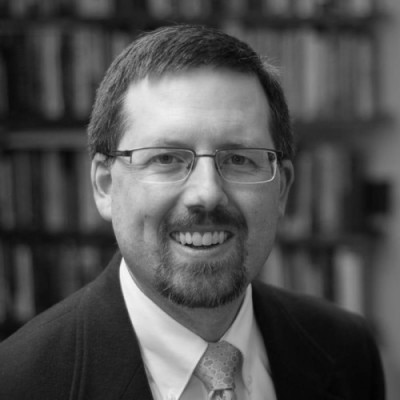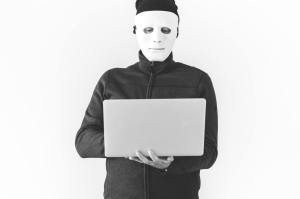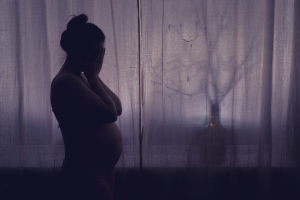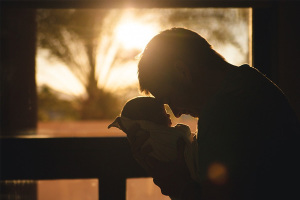Religious freedom and COVID-19

Debates over the impact of shut-down orders on churches have produced dramatic flashpoints for religious freedom. Florida arrested megachurch Pastor Rodney Howard-Browne for continuing to hold services despite closure orders. The governor of Kentucky threatened to send state troopers to take down the license plate numbers of anyone who left their homes for an Easter service — even if they stayed in their cars with their windows up.
These kinds of cases reveal the need for a deeper understanding of religious liberty, that its full expression exists in two types, entailing seemingly contradictory ideas: Liberty is both the freedom from restraint as well as the freedom of restraint. It's become apparent that many churches seek to defend one type of liberty in the quarantine orders, when they really should be holding onto both types.
The first type of liberty — the one some churches reached for publicly — is a legalistic, constitutional, and individualist liberty. Does the First Amendment guarantee the free exercise of religion, including public assembly? Indeed it does. Further, it protects religious bodies from being specifically singled out for limitations. This guarantee serves as an effective and necessary shield when executive orders specifically target churches. So, when the Governor of Kentucky specifically ordered an end to religious services — even drive-in services — it was appropriately struck down. Likewise, when the Mayor of New York threatened to close religious meetings “permanently” if they didn’t comply, observers recognized such bluster was unconstitutional.
Conceiving of liberty only in this legalistic manner, however, could lead churches astray. Some churches stayed open too long, becoming sites for disease spread. A few churches even flaunted their disobedience to general shut-down orders. The individualist approach emphasized the need to assemble, no matter the cost to congregants or the larger community.
In so doing, these churches and pastors are partaking in a cultural mindset that emphasizes individual rights above all. This rights-based outlook provides important protections for individuals and groups, but it is insufficient for a holistic witness.
Instead, that first view of liberty must be linked with a second positive and moral view of liberty, by which liberty gains robust meaning and becomes the mechanism to serve the common good. It turns out, there are plenty of resources for churches to nurture this second perspective.
Indeed, such a viewpoint is rooted in the Jewish and Christian Scriptures. The Mosaic Law not only protected individuals from abuse, but it was deeply concerned with the community impact of actions, as when steps had to be taken to stop the spread of leprosy. The Apostle Paul told the Galatians “you were called to freedom,” but he followed it up with instructions on how to apply that freedom: “do not use your freedom as an opportunity for the flesh, but through love serve one another. For the whole law is fulfilled in one word: “‘You shall love your neighbor as yourself.’” (Galatians 5:13-14). And, immediately to the point, Christians can listen to Jesus’ articulation of the Golden Rule, “whatever you wish that others would do to you, do also to them” (Matthew 7:14).
Such corporate concerns have featured in preaching through American history. Famously, John Winthrop, in his “City on a Hill” message, told the settlers to Massachusetts Bay that “We must delight in each other; make others’ conditions our own; rejoice together, mourn together, labor and suffer together, always having before our eyes our commission and community in the work, as members of the same body.” Thus, the context for practicing liberty was in a corporate setting, working together and caring for others. Similarly, Timothy Dwight of Yale, advised about the “Duties of Americans, at the Present Crisis,” when America was threatened with war with France in 1798 — even though it didn’t materialize. Dwight emphasized the type of liberty his hearers should defend, and it was a corporate one that enabled them to fulfill their duties to one another.
This care for neighbors has also been evident in other American epidemics. Previous disease periods produced their own church closures. When cholera swept the young republic in the 1830s and 1840s, churches closed to prevent disease spread — until it was determined that that disease wasn’t spread person-to-person. Again in 1918, in response to the Spanish flu, churches across the country closed their doors for multiple Sundays. All of these closures happened with no long-term detriment to religious liberty protections or public religious expression. In those same epidemics, it was again religious believers who stepped up to serve the immediately sick and the suffering in their communities.
And, let’s be sure to acknowledge the ways these corporate endeavors are under way today.
This was evident when churches took the initiative and moved their services online of their own accord, before any governmental order went out. Pastors and congregations miss their life together and mourn the loss, but they are doing it for the good of all their neighbors — especially those who may be most endangered by the disease. In my community, a church — the Church of the Highlands — organized one of the first COVID-19 testing sites. Many churches are hosting food banks themselves or donating significant amounts to local pantries. Some of the wisest churches are preparing for the long-term impact of this shut-down on bodies, minds, souls, families, and communities.
With most of the country shut down due to Corona Virus, we can already see patterns in the way churches have responded to the crisis. The temptation has been to publicly hold to the first sense of religious liberty without emphasizing the second sufficiently. Going forward, churches need to champion and practice both senses of religious liberty. This will prepare them not only for our phased re-openings but for subsequent limited closures that will become necessary.
Dr. Jonathan Den Hartog is professor of History at Samford University, the author of Patriotism and Piety: Federalist Politics and Religious Struggle in the New American Nation, and a Scholar Advisor for the Faith and Liberty Discovery Center in Philadelphia, Pennsylvania.



























